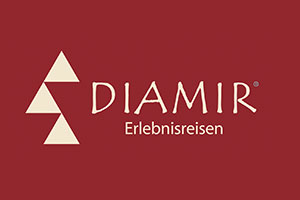Togo
Travel tips for Togo
Top 5 Experiences
The small West African country of Togo is characterized by its rich culture, diverse landscapes and the unique tradition of Vodoo. The highlights include:

Imperial Past
On the northern edge of Lake Togo, you can find is the historic town of Togoville. It well-known for its role in Christianity Togo. You can enjoy a boat ride on Lake Togo, learn the history of the village, and visit the Togoville Museum.

Cities & Culture
One of the most fascinating and distinctive marketplaces in all of West Africa is located in the capital city of Lomé. Traditional African remedies and voodoo artefacts are sold at the Fetish Market.

Koutammakou
Koutammakou, a UNESCO World Heritage Site, is famous for its traditional Togolese mud tower-houses, which resemble miniature castles. In addition to breathtaking scenery and distinctive architecture, the area provides great trekking options and an opportunity to get to know the Batammariba people.

Voodoo Ceremonies
Voodoo is an integral part of Togolese culture and spirituality. You can participate in or observe voodoo ceremonies and rituals in various parts of the country.

Coast
Togo has a beautiful coastline along the Gulf of Guinea. The beaches near Lomé, such as Aneho Beach and Grand Popo, offer relaxing escapes.
Tourist infrastructure
Traveling in Togo has road safety challenges. Roads and vehicles are often in poor condition. Rural journeys can be risky due to pedestrians, animals, and limited lighting. Motorcycle taxis, common but risky, may lack insurance. Different ranges of accommodations can be found in various cities across the country, with a concentration around Lomé.
Morocco offers many touristic accommodations of all categories. The prettiest and most popular ones are the Riads, old and gorgeous townhouses.
Climate and travel season
Togo experiences a tropical, humid climate. It’s important to be aware of the seasonal variations when planning your trip. The rainy season typically occurs from April to November, during which there is a higher risk of floods and landslides, potentially leading to travel disruptions.
Visa and entry
VISA German nationals traveling to Togo require a visa for entry. The visa is obtained online through the government’s official website as an e-Visa, although the online application process is still in its early stages and may have occasional issues, so travelers should plan ahead. If arriving by land, a „Visa on Arrival“ can still be requested at the border.
Impressions from Togo
(Click to enlarge)
Stories
International Hotel Chains Are Driving the Hotel Boom in Africa
Frankfurt, 03 April 2024 - The "Big 5" of global hotel chains - Accor, Hilton, IHG, Marriott International and Radisson ...
Internationale Hotelketten treiben den Hotelboom in Afrika voran
ReThinking Africa Initiative setzt sich für Investitionen in Afrikas Tourismuswirtschaft ein Frankfurt, 03. April 2024. Die „Big 5“ der globalen Hotelketten ...
Voice4Africa x ReThinking Africa News March
KLEBER Group x ReThinking Africa News March 2024 Content Foreword Investment in Africa's tourism industry as a driver for sustainable ...
Our partners in Togo
Visa, Entry, and Updates
Current accessibility
Corona precautionary measures
Status: 03.03.2022


















